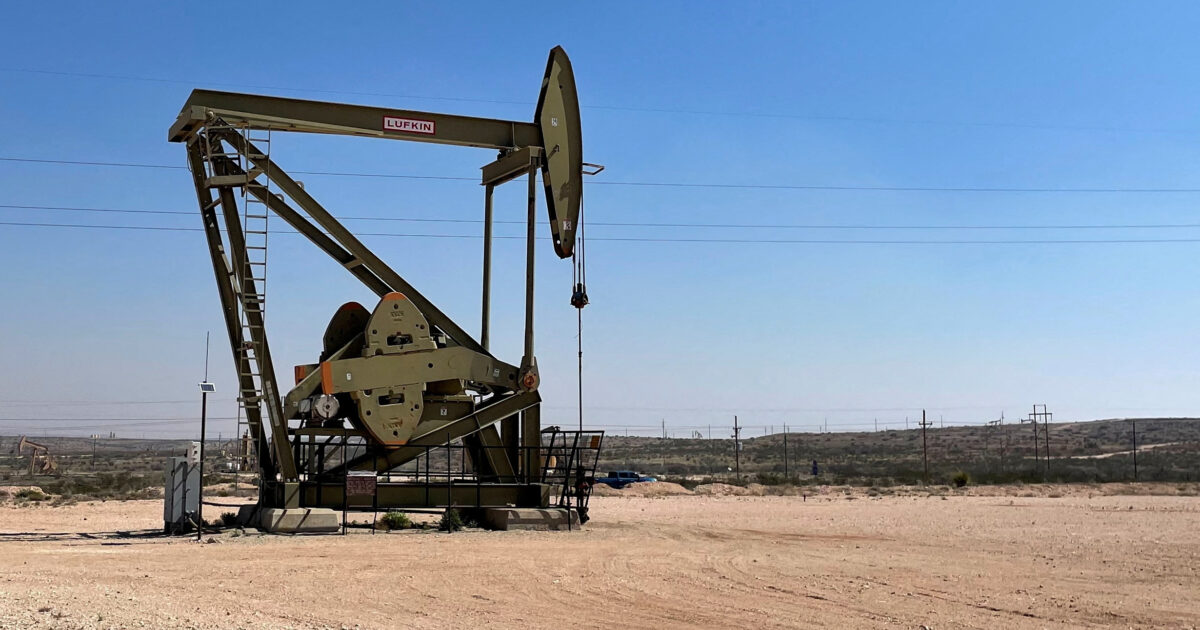After the ‘secondary’ sanctions, the USA They are preparing “secondary” … duties. If the “secondary” sanctions concerned the countries that deal with Russia (which have been imposed by the “primary” sanctions due to its invasion of Ukraine), the “secondary” duties will be related to the countries dealing with Venezuela, buying the oil.
This new finding belongs to US President Trump, who yesterday (24.3.2025) announced this new trade war weapon and was made via the Truth Social Post post and was subsequently confirmed by an executive decree. This decree stipulates that countries could deal with 25% duties in trade with the US if they buy oil and gas from Venezuela, which is already under heavy US sanctions. The move was aimed at putting pressure on Venezuela for “tens of thousands of high levels, and others, criminals” that Trump said Venezuela has sent to the US.
The new approach is added to a growing list of weapons that Trump is willing to develop as part of his effort to use America’s economic power as a lever of pressure to achieve his foreign and domestic policy goals. The idea seems certain to increase tensions with the Latin American nation about immigration and foreign policy.
“This is a new concept in the economic war,” said Francisco Monaldi, director of Latin America’s energy policy at the Rice University Public Policy Institute in Houston. “How can it be applied? It’s unclear of course. “
With this threat, Trump appeared to invent a combination of duties and the so -called secondary sanctions, that is, financial sanctions that can be imposed on other countries or people because they are doing businesses with sanctions on which sanctions have been imposed. The goals of his “secondary duties” could vary widely, as Venezuelan oil goes to the US, Spain, India and the Black market.
The first three countries are covered by licenses in Chevron, Repsol and Reliance Industries. China dominates the black market.
“China is the main factor to which this is addressed, because it is essentially the black market for Venezuelan oil,” Monaldi said. “They wouldn’t have to make secondary duties if China didn’t exist.”
Trump’s executive decree gives Foreign Minister Marco Rubio the discretion to decide, on April 2, if 25% will be imposed on a country that imports oil from Venezuela, either directly or indirectly.
Although the decree does not accurately state who will be targeted with a secondary duty, it states that if such a duty is imposed on China, it will apply not only to the mainland, but also for Hong Kong and Macao. In addition to Venezuela, China was the only country named in the order.
Experts have said that this move is understandable to Trump, who has suggesting that he is less willing to impose financial sanctions. In September, he described that sanctions are able to kill the dollar and “whatever the dollar represents”. Duties, he says, can be used both as a negotiating tool and as a revenue increase measure.
Duties offer the possibility of increasing or reducing the amount of the sentence, which suggests that Trump could increase duties in countries that buy energy from Venezuela by up to 30% or more, if they continue to oppose US policy, or slowly reduce the rate if they make progress.
“Sometimes he sees duties as a form of ratification,” said Josh Lyski, senior director of the Atlantic Council Geo -Economy Center. “He believes, and it was clear about this by the election campaign, that economic sanctions lead to de-dilation.”
Former President Joe Biden could have expanded the use of economic technique tools, Lipsky said in an interview. But Trump “creates completely new tools”.
Finance Minister Scott Bessed has described Trump’s use of duties as a use that falls into three categories – a tool to gain leverage in the negotiations, a measure that generates revenue to offset the cost of expanding the 2017 taxation and as a way to expand the US.
Trump has shown interest in all three of these ideas, sometimes at the same time. At the beginning of his second rule, he threatened the country of Colombia with sanctions, duties, visa restrictions and a host of other sanctions because he refused to receive exported immigrants. The Colombian government has quickly retreated for fear of suffering a costly trade war with the US.
This view was reinforced by one of the Biden White House professionals, who said in an interview before Trump’s moves in Venezuela that the president probably prefers sanctions duties because he sees them as a win-win instead of win-lose.
“In Trump’s mind, the advantage of duties is that even if your goal does not retreat and you have to impose them, at least you get some cash,” said Peter Harrel, a former senior director of international finances and competitiveness at the National Security Council.
